
Call for papers Wireless Ad Hoc and Sensor Networks
Call for papers Wireless Ad Hoc and Sensor Networks Symposium, ICNC 2016 Kauai, Hawaii, Feb. 15-18, 2016 http://www.conf-icnc.org/2016/ Symposium Co-chairs Vo Nguyen Quoc Bao, Posts and Telecommunications Institute of Technology, Vietnam Email: baovnq@ptithcm.edu.vn Yu Cheng, Illinois Institute of Technology, USA Email: cheng@iit.edu Scope The Wireless Ad Hoc and Sensor Networks Symposium covers all topics related to ad hoc networks and sensor networks. A wireless sensor network is a wireless network consisting of spatially distributed nodes with limited resources that can cooperatively monitor physical or environmental conditions at different locations. Each node is capable of computation, sensing, and communication. Challenges may be exacerbated by the presence of mobile nodes in the network. Ad hoc networks may exist in environments where there is no pre-existing communications infrastructure, and thereby organize to create their own. Ad hoc networks have been attracting great attention from the research and engineering communities, motivated by applications like digital battlefield, asset tracking, air-borne safety, situational awareness, and border protection. As we move towards a world that connects all things, these issues become ever more relevant. Dynamic topologies, bandwidth constraints, energy constrained operations, wireless vulnerabilities, and limited physical security are among the characteristics that differentiate mobile ad hoc networks from fixed multi-hop networks. This symposium aims to provide a forum for sharing ideas among researchers and practitioners working on state-of-the art solutions to the challenges of wireless ad hoc and sensor networks. We solicit papers that present original and unpublished contributions addressing various aspects of ad hoc and sensor networks. Topics include but are not limited to, Applications and Evolutions of Ad Hoc and Sensor Networks Physical Layer Design of Ad Hoc and Sensor Networks Topology Control and Management Resource Management Algorithms in Wireless Ad Hoc and Sensor Networks Algorithms and Modeling for Localization, Target Tracking, and Mobility Management Time Synchronization in Ad Hoc and Sensor Networks Architectures of Ad Hoc and Sensor Networks Efficient Protocols and QoS Provisioning Performance Evaluation and Modeling Novel Measurement Techniques, Simulation tools, and Experiment Testbeds Data Management, Data Aggregation, Data Dissemination, and Query Processing Distributed Algorithms in Ad Hoc and Sensor Networks Pricing Modeling and Solutions Pervasive and Wearable Computing Co-existence Issues of Hybrid Networks Energy Efficient Algorithms and Protocols for Ad Hoc and Sensor Networks Opportunistic or Delay-tolerant Communications Cross-layer Design and Infrastructure Internet of things Underwater Acoustic Sensor Networks Cognition in Wireless Ad Hoc and Sensor Networks Participatory sensing Crowdsourcing Submission Guidelines Please follow the author instructions at http://www.conf-icnc.org/2016/ Direct paper submission weblink of this symposium can be found at http://www.conficnc.org/2016/cfp.htm Short biography of co-chairs Vo Nguyen Quoc Bao Vo Nguyen Quoc Bao (in Vietnamese: Võ Nguyễn Quốc Bảo) was born in Nha Trang, Khanh Hoa Province, Vietnam. He received the B.E. and M.Eng. degree in electrical engineering from Ho Chi Minh City University of Technology (HCMUT), Vietnam, in 2002 and 2005, respectively, and Ph.D. degree in electrical engineering from University of Ulsan, South Korea, in 2009. In 2002, he joined the Department of Electrical Engineering, Posts and Telecommunications Institute of Technology (PTIT), as a lecturer. Since February 2010, he has been with the Department of Telecommunications, PTIT, where he is currently an Assistant Professor. His major research interests are modulation and coding techniques, MIMO systems, combining techniques, cooperative communications, and cognitive radio. Dr. Bao is a member of Korea Information and Communications Society (KICS), The Institute of Electronics, Information and Communication Engineers (IEICE) and The Institute of Electrical and Electronics Engineers (IEEE). He is currently serving as the Editor of Transactions on Emerging Telecommunications Technologies (Wiley ETT). He is also a Guest Editor of EURASIP Journal on Wireless Communications and Networking, special issue on "Cooperative Cognitive Networks" and IET Communications, special issue on "Secure Physical Layer Communications". Yu Cheng Yu Cheng received the B.E. and M.E. degrees in Electronic Engineering from Tsinghua University, Beijing, China, in 1995 and 1998, respectively, and the Ph.D. degree in Electrical and Computer Engineering from the University of Waterloo, Waterloo, Ontario, Canada, in 2003. From September 2004 to July 2006, he was a postdoctoral research fellow in the Department of Electrical and Computer Engineering, University of Toronto, Ontario, Canada. Since August 2006, he has been with the Department of Electrical and Computer Engineering, Illinois Institute of Technology, Chicago, Illinois, USA, where he is now an Associate Professor. His research interests include next-generation Internet architectures and management, wireless network performance analysis, network security, and wireless/wireline interworking. He received a Best Paper Award from the conferences QShine 2007 and IEEE ICC 2011, and the Best Paper Runner-Up Award from ACM MobiHoc 2014. He received the National Science Foundation (NSF) CAREER AWARD in 2011 and IIT Sigma Xi Research Award in the junior faculty division in 2013. He served as a Co-Chair for the Wireless Networking Symposium of IEEE ICC 2009, a Co-Chair for the Communications QoS, Reliability, and Modeling Symposium of IEEE GLOBECOM 2011, a Co-Chair for the Signal Processing for Communications Symposium of IEEE ICC 2012, a Co-Chair for the Ad Hoc and Sensor Networking Symposium of IEEE GLOBECOM 2013, and a Technical Program Committee (TPC) Co-Chair for WASA 2011 and ICNC 2015. He is a founding Vice Chair of the IEEE ComSoc Technical Subcommittee on Green Communications and Computing. He is an Associated Editor for IEEE Transactions on Vehicular Technology and the New Books & Multimedia Column Editor for IEEE Network. He is a senior member of the IEEE.
© Copyright 2025
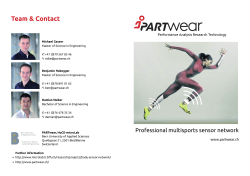

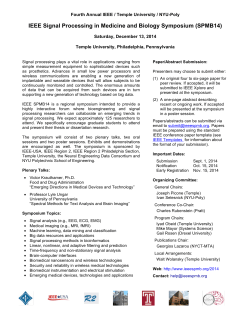

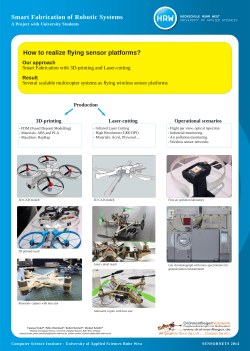
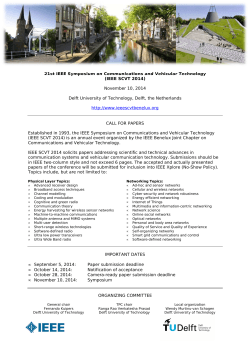
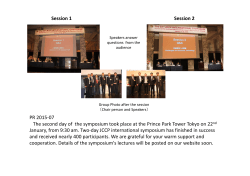


![[WCR-300S] How to Change the Wireless Network Name(SSID)](http://cdn1.abcdocz.com/store/data/000232989_1-c13ffbaf9a88e423608ef46454e68925-250x500.png)
